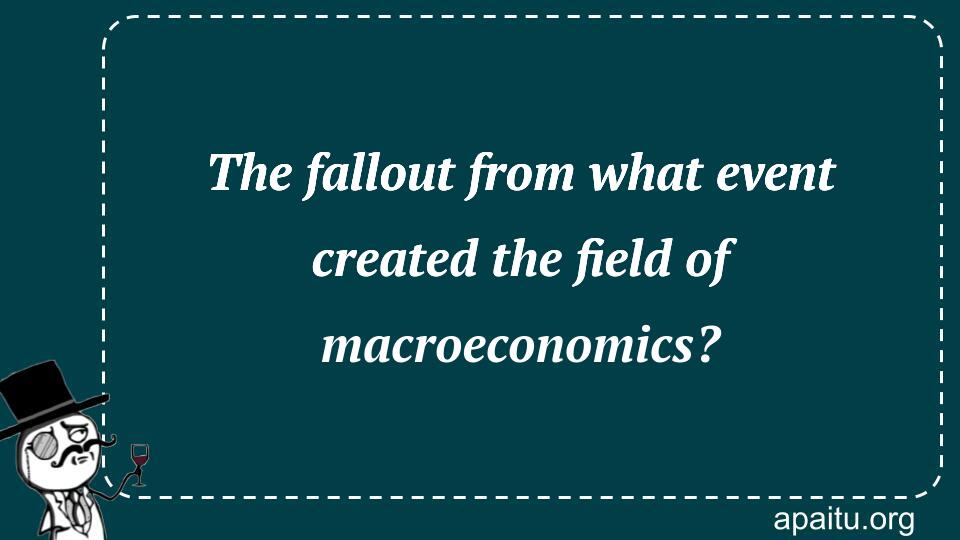Question
Here is the question : THE FALLOUT FROM WHAT EVENT CREATED THE FIELD OF MACROECONOMICS?
Option
Here is the option for the question :
- World War I
- Great Depression
- 1973 Oil Crisis
- Boston Tea Party
The Answer:
And, the answer for the the question is :
Explanation:
The Great Depression spurred the emergence of the discipline of macroeconomics, which examines the behavior of economies as a whole. While many people attribute the onset of the Great Depression to the stock market crash of 1929, the real causes ran far deeper and were more systemic. Government policies, bank collapses, and a sudden drop in the money supply were all contributing factors.

The Great Depression, which lasted from 1929 to 1939, was a period of severe economic contraction and high unemployment that had a profound impact on the development of macroeconomics. Prior to the Great Depression, most economists focused on microeconomics, which is the study of individual markets and how they operate. However, the widespread economic devastation caused by the Great Depression led economists to develop new theories and models to explain the behavior of the economy as a whole.
One of the key figures in the development of macroeconomics was John Maynard Keynes, a British economist who argued that the government could use fiscal policy to stimulate economic growth and reduce unemployment during times of economic downturn. Keynesian economics became the dominant economic theory in the decades following the Great Depression, and influenced government policies around the world.
Another important development in macroeconomics during the aftermath of the Great Depression was the development of national income accounting. This involved measuring the total output and income of a country, and was used to track the performance of the economy over time. National income accounting also allowed economists to develop new theories and models to explain the behavior of the economy as a whole.
The Great Depression also led to the creation of new institutions and policies aimed at stabilizing the economy and preventing future economic downturns. One of the most important of these institutions was the Federal Reserve, which was established in 1913 but gained new powers and responsibilities in the aftermath of the Great Depression. The Federal Reserve is responsible for setting monetary policy, which involves adjusting interest rates and the money supply to promote economic growth and stability.
the Great Depression also led to the creation of a range of government policies and programs aimed at stabilizing the economy and providing support to those who were unemployed or struggling financially. These policies included Social Security, unemployment insurance, and minimum wage laws, among others.
the fallout from the Great Depression had a profound impact on the development of macroeconomics. The economic devastation caused by the Great Depression led economists to develop new theories and models to explain the behavior of the economy as a whole, and led to the creation of new institutions and policies aimed at stabilizing the economy and preventing future economic downturns. Today, macroeconomics remains an important field of study, and continues to influence government policies and economic decision-making around the world.